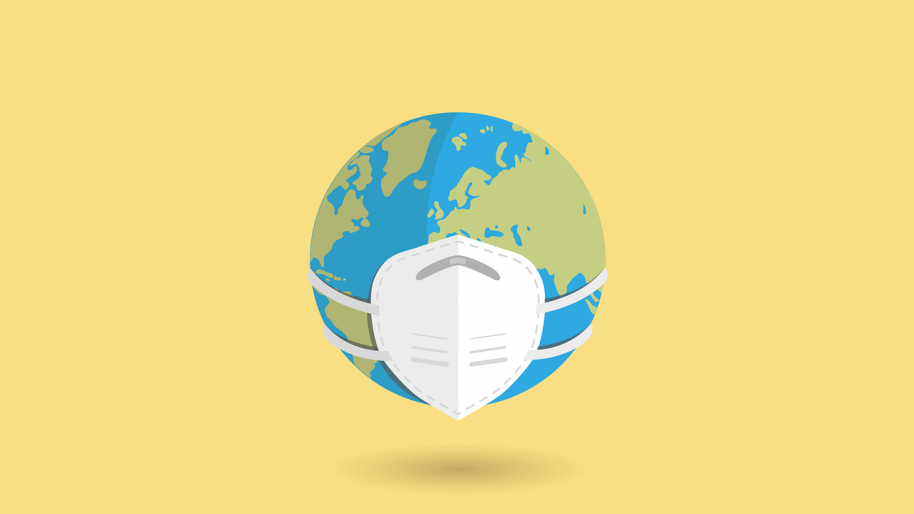COVID-19 took much of the world by surprise. But it shouldn’t have. For several years, public health experts had warned of the importance of preparing for a global pandemic, and this is the fifth since the beginning of the 20th century, according to the CDC: The Spanish flu in 1918, the Asian flu in 1957, the Hong Kong flu in 1968, and the Swine flu in 2009.
Since they weren’t as deadly or as widespread as COVID-19, and only one happened in recent memory, the memory was long buried before 2020.
It will happen again, though.
In July 2021, the Center for Global Development gathered a panel to discuss ways to predict and prepare for the next pandemic, which they believe may come much sooner and be more severe than we think. People have started travelling again, so once a virus has been identified in one part of the world, it’s only a matter of time until it spreads across the globe.
How COVID-19 changed the cleaning industry
In the post-pandemic world, professional cleaners have become a necessity; an essential service that businesses need to fit in their budget for the health and safety of their employees and their customers. Before, many companies wanted their cleaning service to work at night, after everyone had gone for the day. Now, some opt for daytime cleaning so people can see the building being sanitized, reassuring them that it’s safe. The invisible has become visible.
Moving forward, there will be a continued high demand for cleaning and sanitizing services. Cleaning companies will need to use what they’ve learned from COVID-19 and adapt to this new normal if they want to survive.
Stay up to date on CDC and EPA recommendations
What we know about COVID-19 and the latest strains is constantly changing as scientists continue to study the virus. The same will be true of viruses that may cause future pandemics. The CDC continually updates its guidelines on the best ways to clean and disinfect to fight the viruses in accordance with this new information. Cleaning services need to keep up with the latest guidelines and make sure all their employees are trained to follow them consistently.
The Environmental Protection Agency keeps a list of disinfectants they recommend as the most effective in killing the COVID-19 virus. As other viruses threaten our health and new disinfectants become available, that list will change. A cleaning company that works with chemists and other scientists to successfully develop new germ-killing formulas would have an edge on its competitors.
Consider cutting-edge technology
Long gone are the days when a professional cleaning crew did their job with only a mop and a bucket. Companies are employing cutting-edge technologies that help them clean faster and more efficiently. For instance, my company has been using ultraviolet (UV) radiation as a method to disinfect for more than a decade, and it’s now a technology that is gaining widespread interest.
Researchers at the University of California, Santa Barbara, are experimenting with short-wavelength ultraviolet light, UV-C light, which is deadly to bacteria and viruses. They are working to make LEDs that emit this light more effective and cheaper to use. At least one company is using similar technology in the form of robots to disinfect and sanitize hospital rooms.
Drones are being used to clean large spaces, like stadiums, quickly and efficiently. They fly overhead and spray down the area with a powerful disinfectant.
Innovation is even protecting the technicians by engaging battery-powered, touchless cleaning for bathroom fixtures and surfaces. Removing contaminants through a top-down wash, rinse, sanitize and wet-vac removal keeps the cleaning technician safe from the contaminants and helps prevent cross-contamination.
Market to the well-informed, health-conscious consumer
Since the start of the coronavirus pandemic, the public has become more concerned with cleanliness. They are washing their hands more frequently and wiping down high-touch surfaces like door handles and computer keyboards. They’ve learned the importance of disinfecting their spaces and expect more from their cleaning company.
In this climate, the cleaning industry must stress it does more than “clean.” We also sanitize and disinfect. We need to let prospective customers know that the chemicals we are using are safe, yet strong enough to kill COVID-19 as well as other viruses that have become a health threat. They need to be confident that we are on top of the latest protocols to get the job done correctly. Companies that don’t keep up may find themselves edged out of this growing and rapidly changing industry.
As we look ahead to our future, it’s important to keep that next pandemic at the forefront of our planning. It’s not pleasant to think we could all be in a similar situation again and it would be great if this never happened in our lifetimes. But cleaning companies can benefit greatly from being prepared and ready to respond if a new pandemic emerges.
Doug Flaig is President of Stratus Building Solutions, a janitorial services franchise organization, and has spent over 20 years in the world of multi-unit retail with Dunkin’ Donuts, Burger King, 7- Eleven stores, and Wetzel’s Pretzels overseeing hundreds of franchise retail locations. Prior to joining Stratus Building Services, he served as Chief Operating Officer with Safe Facility Services in Thousand Oaks, Calif.









